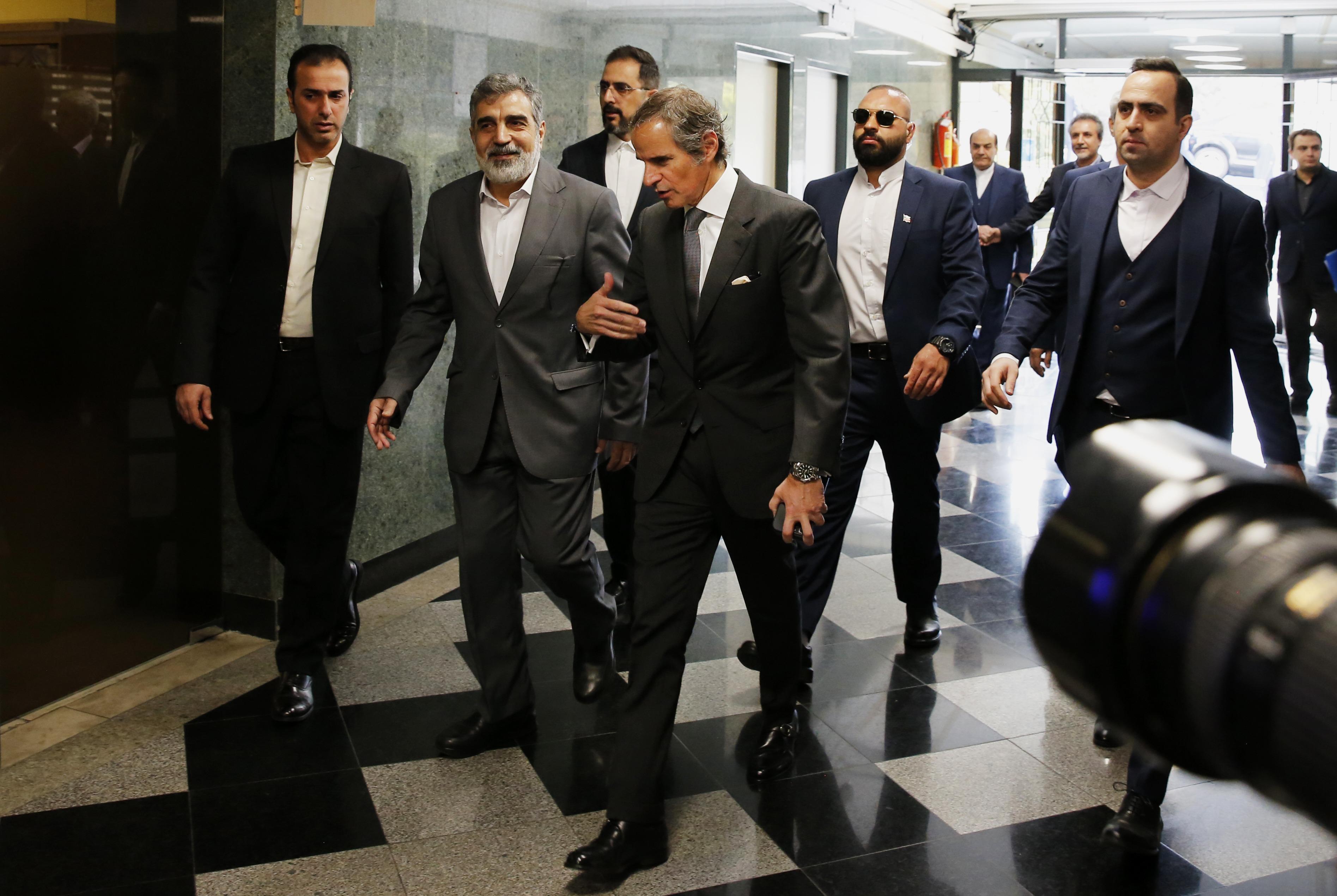 International Atomic Energy Organization, IAEA, Director General Rafael Mariano Grossi (center), arrives for a meeting with head of Atomic Energy Organization of Iran Mohammad Eslami as he is welcomed by the spokesman for Iran's atomic agency Behrouz Kamalvandi (second left), in Tehran, March 4, 2023. (PHOTO / AP)
International Atomic Energy Organization, IAEA, Director General Rafael Mariano Grossi (center), arrives for a meeting with head of Atomic Energy Organization of Iran Mohammad Eslami as he is welcomed by the spokesman for Iran's atomic agency Behrouz Kamalvandi (second left), in Tehran, March 4, 2023. (PHOTO / AP)
TEHRAN - Iran will accept further monitoring by the International Atomic Energy Agency (IAEA) providing that the sanctions are lifted, said the spokesman of the Atomic Energy Organization of Iran (AEOI) on Sunday.
Behrouz Kamalvandi made the remarks in a live televised interview with the Islamic Republic of Iran News Network, elaborating on the cooperation between the AEOI and IAEA.
ALSO READ: Khamenei: Nothing wrong with nuke deal if basis intact
He said the AEOI is cooperating "favorably" with the agency, yet some Western states put forward "excessive demands" on Iran, urging it to assume obligations beyond the safeguards agreements.
It is practically "unjustifiable," said the spokesman.
Behrouz Kamalvandi said the AEOI is cooperating "favorably" with the agency, yet some Western states put forward "excessive demands" on Iran, urging it to assume obligations beyond the safeguards agreements
He said a law passed by the Iranian parliament in 2020 mandated the government to restrict IAEA's inspections of Iran's nuclear facilities and accelerate the development of the country's nuclear program beyond the limits set under a 2015 nuclear deal.
He said Iran's uranium enrichment capacity currently stands at 38,000 separative work units (SWUs), adding it can be swiftly increased to nearly 40,000 SWUs.
Iran's Supreme Leader Ali Khamenei said on Sunday there is nothing wrong with reaching a nuclear deal providing that the country's atomic infrastructure remains "intact."
ALSO READ: Iran's atomic chief hails nuclear progress despite threats, sanctions
He stressed that the cooperation between Iran and the IAEA should be maintained, but the parliament's strategic law must not be violated.
READ MORE: Iran denies existence of 'undeclared' nuke material
Iran signed the nuclear deal, known as the Joint Comprehensive Plan of Action (JCPOA), with world powers in July 2015, agreeing to put some curbs on its nuclear program in return for the removal of the sanctions on the country. The United States, however, pulled out of the deal in May 2018 and reimposed its unilateral sanctions on Tehran, prompting the latter to reduce some of its nuclear commitments under the deal.


